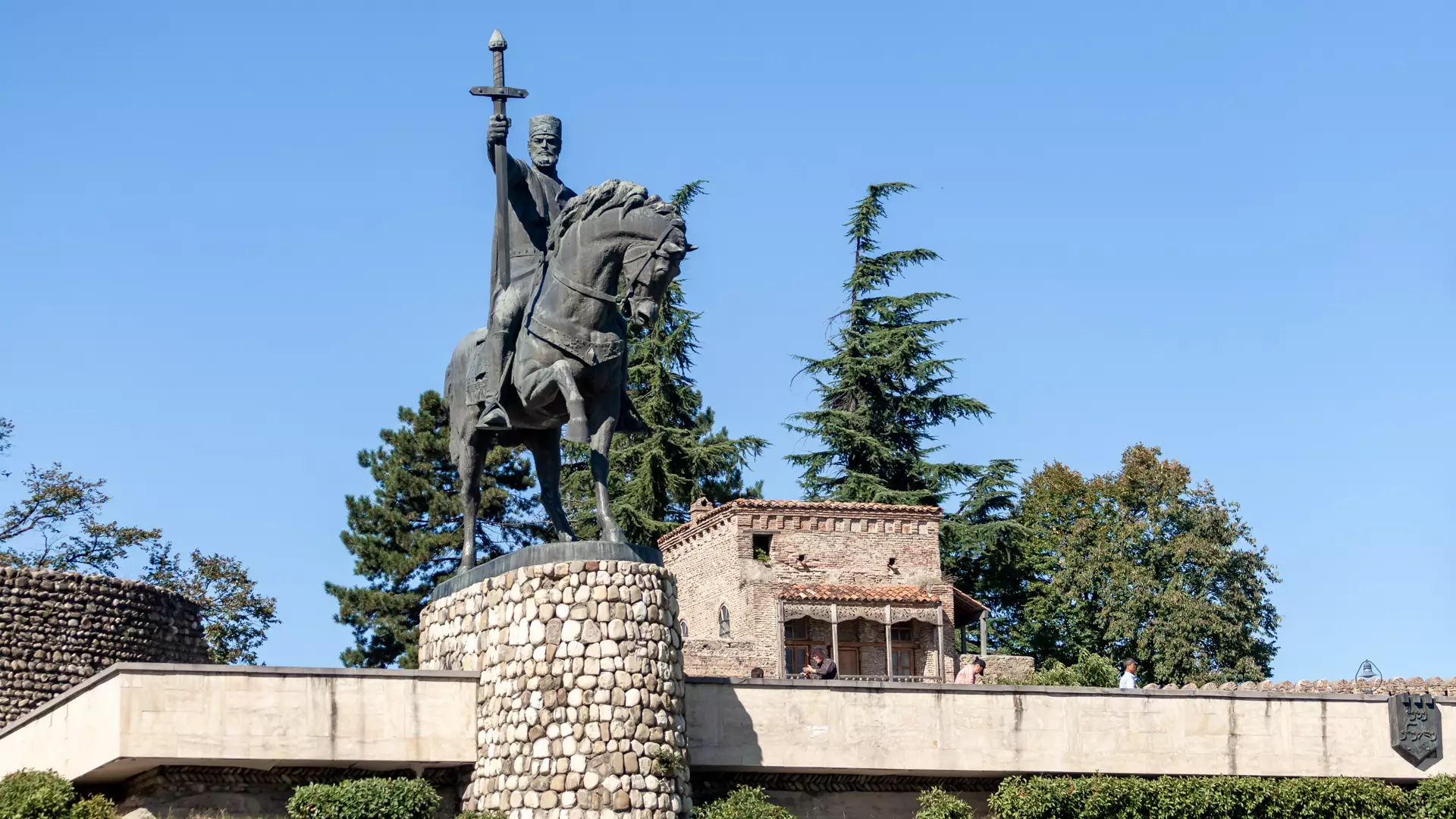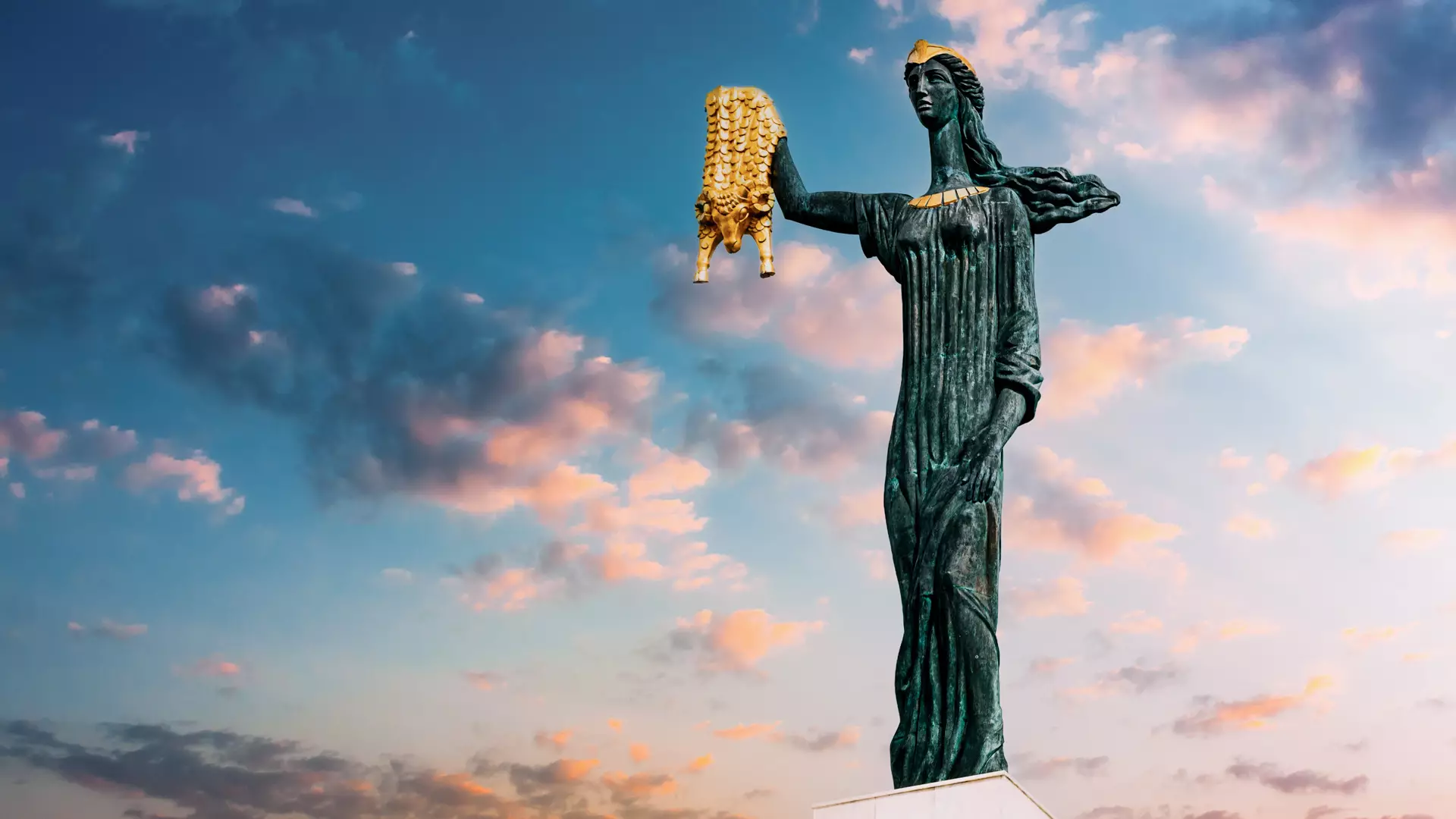Georgia as Told by Legends
Special Georgia
All Georgians have a sense of uniqueness of their country, which, sometimes, they makes fun of.
The plot goes as follows: As it turns out, God was dividing the lands between His people. The Georgians, as always, were late. “Why are you late? Now there's nothing left, what can I give you now?” - God questioned. "We were raising so many toasts to you, how could we get here on time?!”- the Georgians answered right away. “Fair enough”, said God and decided to give Georgians the land that He had reserved for Himself.
What sort of place do you imagine it would be? You are right! That’s exactly what Georgia is!
There is another story too: as the Apostles cast lots as to who would preach Christianity in different countries, enlightening Georgia was entrusted to the Virgin Mary. For this reason, Georgia is sometimes referred to as “destined to Mother of God” And although she herself could not come to Georgia, the story, and the belief to be “destined to Mother of God” is now embodied in Georgian culture.
Saints and Kings
Since we are talking about Christianity, we should mention St. Nino who was from ancient Cappadocia. She managed to convert pagan Georgians to Christianity. Not only did individual citizens believe in Christ, but the king and queen also declared Christianity as the state religion. Nino is one of the most important figures of the Georgian Christian world, while the name Nino is one of the most popular female names in Georgia today.
Georgian legends often have their favorite characters. Georgian folklore is particularly replete with the stories related to Queen Tamar and St. George of Cappadocia. As they say, there is at least one story about St. George for all 365 days of the year.
Tamar’s name is often associated with many different places and stories, that the listener frequently wonders whether they were actually true or not. Those stories are simple yet told with so much passion: “When Tamar was walking here, this and that happened...”, “Tamar used to drink water here,” “When Tamar was a kid, she got lost in caves while playing games…” With regards the latter, little Tamar once joyfully said, "I'm here uncle!" (in Georgian: Ak var, dzia!) as her companions lost sight of her and began searching for her. That's where the town of Vardzia got its name from. By the way, if you still haven’t explored Vardzia, as well as Uplistsikhe, rock-hewn caves, add them to your travel list.
As legend claims, Uplistsikhe was constructed by slaves. To break the rock, stone picks were given to them. Those picks had an iron coating over gold. The gold portion of the pick served as the slaves' reward after a protracted period of labor during which they had worn out the iron while excavating the rock. This myth demonstrates two things: first, just how much labor was poured into creating Uplistsikhe, and second, that Georgia has had the ability to mine and refine gold since ancient times.
Mythical Characters
Georgian myths and legends are a realm full of magic, telling you a simple tale while giving you a lot to consider. Parallels with other nations, peoples, and events will be drawn, and a fascinating web of connections will be constructed through which you will be able to examine mythological characters with interest.
Who are they? The Queen of Forest, Tkashmapa and the Goddess of Hunting, Dali - Georgian Artemis and Diana; Elijah the Lord of the Clouds; White Mangur, Iakhsari, Kopala, and more.
The legend of Khogai Mindia describes the advantages and disadvantages of having the capacity to know it all. The legend leaves us questioning “Do you really think being able to speak every language, or knowing everything will do you any good?”
The folklore provides us with several accounts of whether the chained Amirani managed to escape from captivity. Amirani was brutally punished and bound to a rock with iron chains for bringing fire to humans and concealing it from God. And while a bird would try to help him by loosening the chains, thus giving him hope, the blacksmiths sent from God would retighten the chains again and again.
Did the legend of Amirani remind you of Prometheus? Or did the never-ending torment of Amirani make you think of Sisyphus?
The similarities between Prometheus and Amirani have led us to one important myth: the role of Georgia, as one of the homelands of myths, alongside Greece.
The Myth About Argonauts
There always is a seed of truth in any legend, as demonstrated by Schliemann when excavating Troy. Have you heard the myth about the Argonauts?
The area that is now western Georgia was once part of the Kingdom of Colchis. Aeëtes, a son of the sun-god Helios, served as the monarch of Colchis. The mythology holds that it was in his nature to rule, dictate and govern. Medea, the granddaughter of Helios, was Aeëtes's daughter. In world literature and mythology, Medea has had the dominant position, while far less attention has been given to her father.
Aeëtes had a golden fleece, which was a sheepskin wrapped in gold, loaded with esoteric significance. One day, the Greek ship "Argo" arrived to take possession of this treasure. Jason, the captain, went up to the king and requested the fleece. If Jason would do the tasks assigned by Aeëtes, the monarch promised to give him the fleece.
Aeëtes was a wizard, so fulfilling his tasks would not indeed be simple. Medea, his daughter, who was by then struck by Cupid's arrow of love for Jason, taught him how to overcome those challenges, which resulted in stealing the Golden Fleece from her own father and fleeing to Greece along with Jason.
Many authors have written on how the lives of those two unfolded. But we will only remind you of one thing: medicine is the term used to describe health care worldwide, derived from the name Medea. Medea had the same magical skill to recognize plants just like her aunt Circe did. With her skills, knowledge and power, she could conjure up healing herbal mixtures saving many from inevitable death. That’s why and how her name is so tightly connected to the science of medicine.
The fact that the "Argo" could indeed move along the Phasis River was also confirmed by Timothy Severin in the 20th century through the trip he took with his own boat, also called "Argo". Let’s leave it to the future to determine whether Georgians' blood contains genes from the sun god.
Who knows?
Cookie Policy


